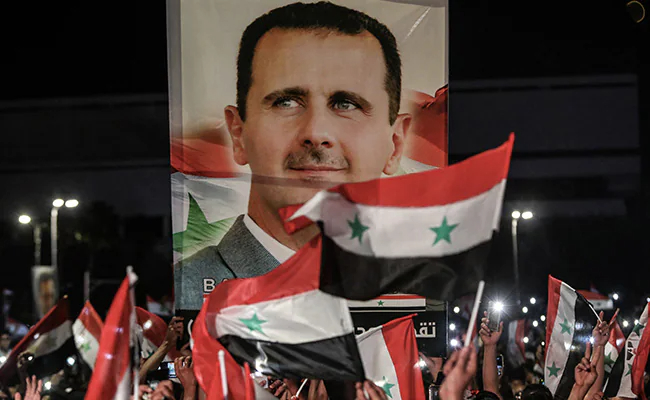Syria’s incumbent President Bashar al-Assad has been elected for a fourth term in a landslide victory this week.
President al-Assad of the Arab Socialist Ba’ath Party, won 95.19% of the vote, while the Socialist Unionists’ Abdallah Salluom Abdallah won 1.5% and the Democratic Arab Socialist Union’s Mahmud Ahmad Marei won 3.3%.
The election has been controversial, with countries such as the US, UK, France, Germany, and Italy refusing to accept the results.
The National Coalition of Syrian Revolutionary and Opposition Forces, originally organised and funded by the US, its NATO allies, Qatar, and Saudi Arabia called the election “illegal and a farce.” At least 20 nations consider the National Coalition the “sole legitimate representative of Syria” including Qatar, France, the UK and the United States.
Geir Pedersen, the UN’s Syria envoy claimed that the polls were not held under the political transition called for in Security Council Resolution 2254 on free and fair elections.
However, the Syrian government has welcomed oversight of the election, with the People’s Assembly voting to invite international observers from around the globe. Countries invited include Cuba, China, Bolivia, Venezuela, Belarus, Russia, South Africa, Algeria, Oman, Mauritania, Iran, Armenia, Ecuador, and Nicaragua.
Russia’s foreign ministry announced great support for the election, stating “A decisive victory was won by the incumbent head of state… We view the elections as a sovereign affair of the Syrian Arab Republic and an important step towards strengthening its internal stability.“
Certain countries chose not to allow expatriate voting for Syrians living in their country, including Canada, Germany, The Netherlands, Turkey, Qatar, United Kingdom, Saudi Arabia and the United States.
Head of Syrian Parliament Hammouda Sabbagh announced 78% of eligible voters turned out, with over 14 million Syrians placing their votes.
The elections were not held in the Autonomous Administration of North and East Syria, a predominantly Kurdish region, save for the government-controlled military zones in Hasakah and Qamishlo. The Autonomous Administration leadership, the Syrian Democratic Council, closed the border to all but ambulances, which would prevent residents from travelling to government areas to vote.
Thousands of Syrians in Lebanon were bussed by the Syrian Workers Association to the Syrian Embassy to vote. Violence broke out with anti-Assad Lebanese attacking Syrians voting for Assad.
Belarus’ President Alexander Lukashenko gave his congratulations to Assad calling his victory “evidence of recognition of the President al-Assad’s national role as a national leader who confidently defends his country against foreign interference, and fights for peace and stability in Syria.“
Speaking to news agency AFP, a doctor named Houwayda al-Nidal explained how al-Assad’s victory “carries two messages.” Firstly, the leader who won the war will lead the reconstruction, and secondly a message “for foreigners, to show who will lead the political talks after the end of the fighting on the ground.“
Philip English, is a member of the YCL’s Manchester Branch



